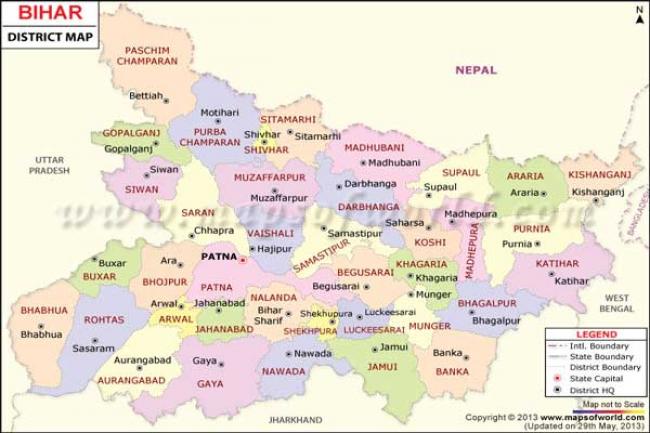Just Earth News 26 May 2016, 05:10 pm Print

On-ground experiences gathered by CRY – Child Rights and You and Bihar Bal Awaj Manch (BBAM), the state-level alliance for child rights in Bihar.
Recent experiences from the districts and several evaluation studies under the umbrella of National Institute of Public Co-operation & Child Development (NIPCCD) corroborate the fact that, Aanganwadi Centres are still commonly perceived as mere ‘Kichdi Distribution Centres’, as conclusive ICDS services have failed to address the issue of quality child care and development process in the community. As a result, the marginal and socio-economically vulnerable children are still denied of their basic requirement of nutrition and pre-school education.
“If one is to go by the latest Govt. data, approximately 91,000 sanctioned AWCs are working in the state, providing nutrition and health services to 45 lakh children in the age-group of 0-6 years, in 38 districts. AWWs (Aanganwadi Workers) have undergone different phases of capacity building trainings. But, the ICDS has been successful in reaching out to only half of the children in the mentioned age-group. This in itself is an indicator pointing at the fact that there is a lot to be done to ensure that the required services reach to all the beneficiary children,” said Uday, Chief Patron of BBAM.
“The challenges of quality pre-school education and overall Early Child Care and Development (ECCD) has remained a critical issue in the State, due to the factors including resource crunch, lack of duly trained workers, poor community-level awareness and half-hearted community participation. Issues like comprehensive monitoring and management of the ICDS, and adequate budget allocations, which are crucial for the success of this ambitious project, also fall short of expectation,” noted Mohua Chatterjee, the Programme Head of CRY operations in Eastern India.
Highlighting the importance of pre-school education in ICDS, she added, “Early childhood care plays an important role in the lives of children. Starting from conception to 5 years of age, children develop their motor, cognitive, physical and social skills. Challenges, discrimination, violation of rights and limited opportunities in this phase have fundamental impacts in their lives, and become obstacle for growth and development. Several researches on child development processes advocate that, children’s performance in schools has strong linear relationship with quality of early life experiences and learning outcomes. If not given due importance, the lack of focus on pre-school education in this age-group will affect children’s formal education.”
In a two-day long workshop on ECCD held in Patna, Saradindu Bandopadhyay, Head of CRY operations in Bihar said, “There is a roadblock in terms of smooth transition of children from pre-primary education to formal primary schools. Even though the Central and state Governments have launched many programs to address the issue, the care-givers have failed to reach out to children, both in quantity and quality. Our field experiences reveal that across the state the services have failed to cater the objectives of this flagship program in letter and spirit.”
“More focus on the Pre-School Education in the AWCs, adequate budget allocation, capacity building of AWWs, developing infra-structural facilities, increased use of teaching & learning materials along with proper monitoring and evaluation of the over-all service delivery system are among the steps to be taken to improve the scenario,” he explained.
Rajiv Ranjan, State Coordinator of BBAM said, “While the focus of the care-givers has been on the Supplementary Nutrition Programme (SNP), Growth Monitoring Chart (GMC) and Referral Care, delivery of quality Pre-School Education (PSE) was somehow de-prioritized. During the field visit and interaction with the AWW, it was evident that there were gaps in terms of policy narratives and its implementation in the field.”





-1763561110.jpg)
